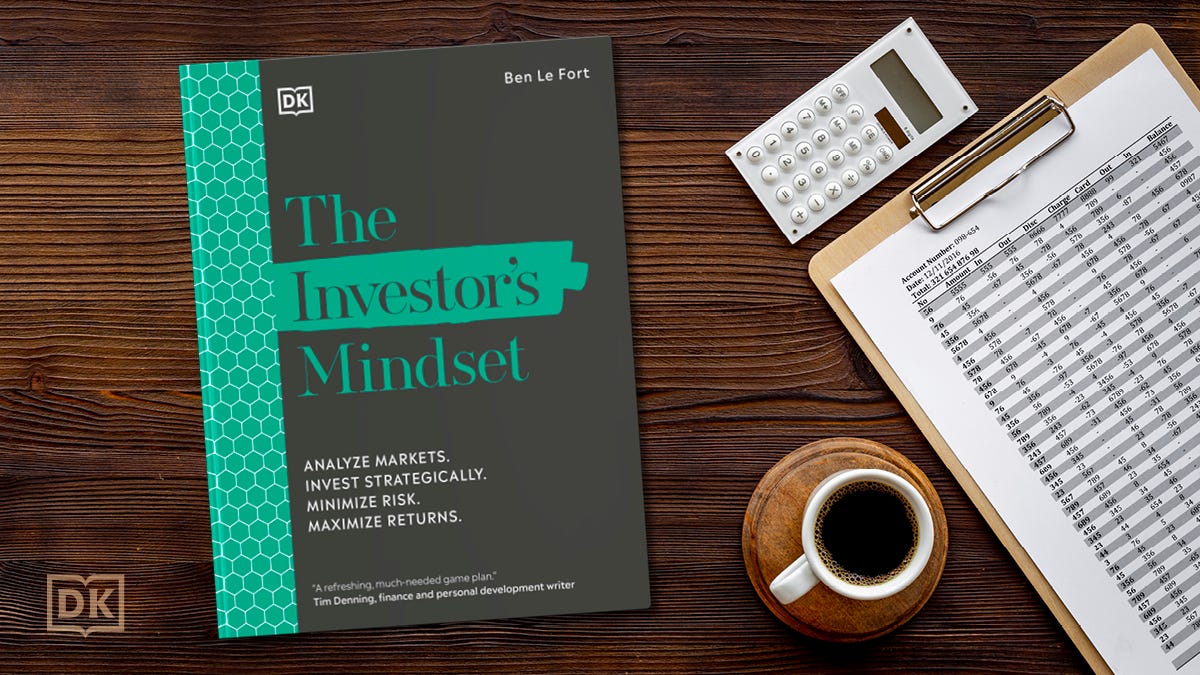Want to Earn Less than Minimum Wage? Try Day Trading
The only way day traders make money is by selling online courses about day trading

Trading stocks is not like learning to play the guitar.
Even if it was, the overwhelming odds are that you will not be Jimi Hendrix. You’d be that person everyone is cringing at as you fumble your way through “Wonderwall” around the campfire.
There’s nothing wrong with playing the guitar poorly. But, if you get into risky investment strategies like day trading, you could easily put your financial future in jeopardy.
That’s why one of my least favorite niches of online courses is investing courses that promise to teach you how to quit your job and day trade for a living.
Let’s review all the ways in which those types of claims are bull$hit.
The reality of trading stocks
The top 0.5% of stocks bought every day on Robinhood lose about 4.7% over the next month.
That was one of the findings from a recent research paper titled “Attention-Induced Trading and Returns: Evidence from Robinhood Users.”
The researchers studied data from Robinhood to determine the impact on individuals’ trading and stock prices. They found the most bought stocks on Robinhood lose money after users jump on the bandwagon.
The researchers hypothesize two reasons Robinhood users underperform:
Robinhood attracts inexperienced investors.
Unique features of the app help facilitate “attention-induced trading.”
Let’s review the evidence that explains why those two ingredients—inexperience and buying what’s popular— are a recipe for terrible investment returns.
We are all bad at trading stocks
A 1998 paper written by professor Terrance Odean from the Haas School of Business, University of California Berkeley, asked a simple question: “Do Investors Trade Too Much?”
(Spoiler: yes, they do)
Odean analyzed 10,000 trading accounts at discount brokerages to understand the performance of retail investors who regularly trade stocks. He found that retail investors were engaging in excessive trading that caused them to underperform.
To make money trading stocks requires you to get two things right.
Buying the right stock at the right price.
Selling that stock at a higher price and trading it for a better-performing stock.
Odean found that the average retail investor was not that bad at buying the right stocks; the problem was investors are terrible at knowing when to sell those stocks.
They couldn’t stick the landing.
Here’s how Odean phrased it.
“On average, the stocks that traders sell outperform the stocks they buy next.”
Translation: traders would make more money by simply holding their stocks rather than continuing to trade— the term for this would be excessive trading.
Pre-Order The Investor’s Mindset
My new book, The Investor’s Mindset, is your playbook to win as a long-term investor.
In part 1 of the book, I lay out a simple investing framework + give my best tips for managing money as an investor
In part 2, I teach you how to prevent fear and greed from destroying your plan.
Pre-order The Investor’s Mindset on Amazon or wherever you buy books.
Your brain won’t let you sell stocks
To understand why it’s so hard to sell your stocks at the right time, Professor Odean gives us a lesson in behavioral finance.
Professor Odean explains the concept of a “reference price,” which is what an investor “perceives” as their breakeven point, where they would be indifferent about whether to hold or sell a stock. The word “perceives” is the keyword because the wild swings in stock prices can radically alter our perceived breakeven point.
In the paper, Professor Odean uses the example of a homeowner who bought a house for $100,000.
$100,000 is their breakeven point.
But if the housing market goes bonkers and the price increases to $200,000, after a while, the homeowner adopts $200,000 as their new breakeven point.
They might be unwilling to sell for less than $200,000 even if the market dictates a lower price in the future.
Think about how that might play out in the situation with a stock.
You buy a stock at $30 per share.
It quickly jumps to $60.
Eventually, you might view $60 as your new reference price. If you sell below this, you “feel” like you are losing money even though you’re not.
So you hang onto the stock even as it continues to slide downwards.
Another explanation for why investors hang onto losing stocks for too long is a cognitive bias known as the endowment effect, which causes you to overvalue an asset once you own it.
I wrote an article about how the endowment effect hurts your finances—beyond just investing—here:
Most traders focus on the ‘popular’ stocks
There are tens of thousands of publically traded companies worldwide, but most day traders focus on a tiny fraction of those stocks—most often, they trade stocks that are driving the news.
You can guess how that plays out.
A 2021 paper titled “Internet Search, Fund Flows, and Fund Performance” used Google search volume to measure investor attention to explore the connection between investment funds that were grabbing headlines and the future performance of those investments.
If an investment fund saw a spike in Google searches, the researchers wanted to know how much money was poured into the funds after that spike in traffic and how the fund performed.
They found that retail investors were more likely to buy these funds that generated online buzz. Unsurprisingly, these attention-driven investors had negative future returns.
It’s a pretty simple picture to paint.
Search traffic for an investment fund is highly correlated with its past returns.
Once a fund does well, it gets investors’ attention.
Investors pile into the fund, expecting the fund to continue to outperform.
This is called “return chasing.”
Predictably, these superstar funds tend to perform poorly after everyone has piled into them.
The most recent investors who bought at the top lose the most money.
Put simply; they buy at the highest possible price when the investment is being hyped up. Then they lost money when the bubble popped.
The most relevant quote from the paper:
“Investors cannot generate superior fund-related future returns when they exclusively follow online buzz and associated suggestions.”
This explains why the most traded stocks on Robinhood lost 4.7% the following month. Making investment decisions based on what’s “popular” is completely devoid of logic.
Here’s how much money day traders make
Finfluncers sell expensive online courses to inexperienced investors with the promise to “trade like they do” and make a killing in the stock market.
You should ask yourself two questions when someone tries to sell you a day trading course.
Do day traders actually make a lot of money?
Can someone easily teach me how to be a successful day trader?
The answers to those questions are no, and hell no!
Let’s start by looking at the actual evidence of how much money day traders make—not what the finfluncers claim to be making.
A 2019 paper titled “Day Trading for a Living?” by Chague Et al. looked at how much money day traders in Brazil made between 2013-2015.
The following quote from the paper will tell you all you need to know about the prospects of a career in day trading.
“97% of all individuals who persisted for more than 300 days lost money. Only 1.1% earned more than the Brazilian minimum wage and only 0.5% earned more than the initial salary of a bank teller — all with great risk.”
So, if you want to combine the hourly wage of someone flipping burgers with the risk and volatility of a startup, then day trading is the career for you!
Even the mythical “great day trader” can’t teach you to be one
There may be a handful of people in the world who can make big-time money as a day trader.
But even these great traders can’t teach you to trade as profitably as they do, just like Steph Curry can’t teach you to shoot a basketball as well as he does.
Chague Et al. looked at the question of whether day trading is a skill that can be learned—they found “no evidence of learning” among day traders.
If most day traders lose money, and there’s no evidence that day trading is something that can be effectively taught, then buying a course on how to trade stocks is likely to be a waste of your two most important assets; time and money.
Get smarter with money
Consider becoming a paid subscriber and unlocking my full archive of posts.
Already a paid subscriber? (thank you!). Consider donating a paid subscription that I can give away to a reader who is going through a rough patch financially. Anyone who donates a subscription will receive a 50% lifetime discount on your subscription.
This article is for informational purposes only. It should not be considered Financial or Legal Advice. Not all information will be accurate. Consult a financial professional before making any major financial decisions.



